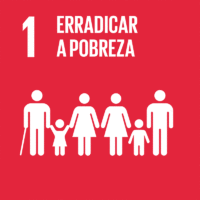Ciência-IUL
Publicações
Descrição Detalhada da Publicação
A sociotechnical approach to causes of urban blight using fuzzy cognitive mapping and system dynamics
Título Revista
Cities
Ano (publicação definitiva)
2021
Língua
Inglês
País
Reino Unido
Mais Informação
Web of Science®
Scopus
Google Scholar
Abstract/Resumo
Urban blight often is prominent in urban environments. It consists of real estate degradation to the extent that blighted residential properties, unfortunately, may provide housing only for the poorest social classes. Urban blight reduces real property values in urban neighborhoods and urban centers, reduces business investment and increases unemployment. Urban blight is not static, but continuously changing, either getting worse or improving. Thus, it is an issue of growing concern for urban decision makers who may attempt to determine its causes. Determining causes of urban blight facilitates the development of strategic measures for the prevention and potential eradication of this phenomenon. This study seeks to bolster the identification of factors that cause urban blight and makes important contributions to both the academic communities and society at large. By combining fuzzy cognitive mapping and the system dynamics approach, our proposal facilitates the identification of urban blight determinants and the development of alternatives to control and eradicate them. Data used in our study were provided by a panel of urban blight experts, and allowed for the identification of the following major causes of urban blight: deficiencies in sociability and/or culture; unfavorable economic and financial factors; policy and/or administrative shortages; lack of urban regeneration; insecurity for people and assets; and building and/or surroundings defects. The results of our decision-support system were analyzed and validated by an independent expert who works for the Lisbon City Council in Portugal. Recommendations for future research are also provided.
Agradecimentos/Acknowledgements
--
Palavras-chave
Cognitive mapping,Fuzzy cognitive map,Real estate,Strategic planning,System dynamics,Urban blight
Classificação Fields of Science and Technology
- Economia e Gestão - Ciências Sociais
Registos de financiamentos
| Referência de financiamento | Entidade Financiadora |
|---|---|
| UID/GES/00315/2019 | Fundação para a Ciência e a Tecnologia |
Contribuições para os Objetivos do Desenvolvimento Sustentável das Nações Unidas
Com o objetivo de aumentar a investigação direcionada para o cumprimento dos Objetivos do Desenvolvimento Sustentável para 2030 das Nações Unidas, é disponibilizada no Ciência-IUL a possibilidade de associação, quando aplicável, dos artigos científicos aos Objetivos do Desenvolvimento Sustentável. Estes são os Objetivos do Desenvolvimento Sustentável identificados pelo(s) autor(es) para esta publicação. Para uma informação detalhada dos Objetivos do Desenvolvimento Sustentável, clique aqui.

 English
English



